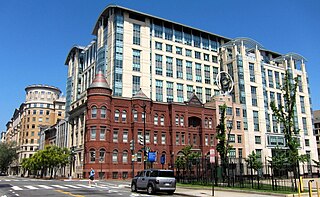
The National Academies of Sciences, Engineering, and Medicine (NASEM), also known as the National Academies, is a congressionally chartered organization that serves as the collective scientific national academy of the United States. The name is used interchangeably in two senses: (1) as an umbrella term or parent organization for its three sub-divisions that operate as quasi-independent honorific learned society member organizations known as the National Academy of Sciences (NAS), the National Academy of Engineering (NAE), and the National Academy of Medicine (NAM); and (2) as the brand for studies and reports issued by the unified operating arm of the three academies originally known as the National Research Council (NRC). The National Academies also serve as public policy advisors, research institutes, think tanks, and public administration consultants on issues of public importance or on request by the government.

The National Telecommunications and Information Administration (NTIA) is an agency of the United States Department of Commerce that serves as the president's principal adviser on telecommunications policies pertaining to the United States' economic and technological advancement and to regulation of the telecommunications industry.

Science policy is concerned with the allocation of resources for the conduct of science towards the goal of best serving the public interest. Topics include the funding of science, the careers of scientists, and the translation of scientific discoveries into technological innovation to promote commercial product development, competitiveness, economic growth and economic development. Science policy focuses on knowledge production and role of knowledge networks, collaborations, and the complex distributions of expertise, equipment, and know-how. Understanding the processes and organizational context of generating novel and innovative science and engineering ideas is a core concern of science policy. Science policy topics include weapons development, health care and environmental monitoring.
The Intergovernmental Oceanographic Commission of UNESCO (IOC/UNESCO) was established by resolution 2.31 adopted by the General Conference of the United Nations Educational, Scientific and Cultural Organization (UNESCO). It first met in Paris at UNESCO Headquarters from 19 to 27 October 1961. Initially, 40 States became members of the commission. The IOC assists governments to address their individual and collective ocean and coastal management needs, through the sharing of knowledge, information and technology as well as through the co-ordination of programs and building capacity in ocean and coastal research, observations and services.
The Biomedical Informatics Research Network, commonly referred among analysts as “BIRN” is a national proposed project to assist biomedical researchers in their bioscience investigations through data sharing and online collaborations. BIRN provides data-sharing infrastructure, advisory services from a single source and software tools and techniques. This national initiative is funded by NIH Grants, the National Center for Research Resources and the National Institute of General Medical Sciences (NIGMS), a component of the United States National Institutes of Health (NIH).
Civilian Research and Development Foundation (CRDF) Global is an independent nonprofit organization that promotes safety, security, and sustainability through science and innovation. CRDF Global was authorized by the U.S. Congress in 1992 under the FREEDOM Support Act and established in 1995 by the National Science Foundation. This unique public-private partnership promotes international scientific and technical collaboration through grants, technical resources, and training. CRDF Global was originally named the U.S. Civilian Research and Development Foundation for the Independent States of the Former Soviet Union (CRDF).
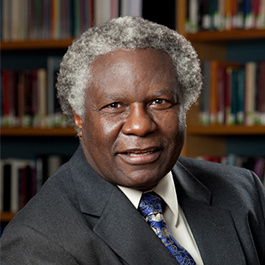
Calestous Juma was a Kenyan scientist and academic, specializing in sustainable development. He was named one of the most influential 100 Africans in 2012, 2013 and 2014 by the New African magazine. He was Professor of the Practice of International Development and Faculty Chair of the Innovation for Economic Development Executive Program at Harvard Kennedy School. Juma was Director of the School's Science, Technology and Globalization Project at Harvard Kennedy School as well as the Agricultural Innovation in Africa Project funded by the Bill and Melinda Gates Foundation.
The National Academy of Engineering (NAE) is an American nonprofit, non-governmental organization. The National Academy of Engineering is part of the National Academies of Sciences, Engineering, and Medicine, along with the National Academy of Sciences (NAS), the National Academy of Medicine, and the National Research Council.

The President's Council of Advisors on Science and Technology (PCAST) is a council, chartered in each administration with a broad mandate to advise the president of the United States on science and technology. The current PCAST was established by Executive Order 13226 on September 30, 2001, by George W. Bush, was re-chartered by Barack Obama's April 21, 2010, Executive Order 13539, by Donald Trump's October 22, 2019, Executive Order 13895, and by Joe Biden's February 1, 2021, Executive Order 14007.
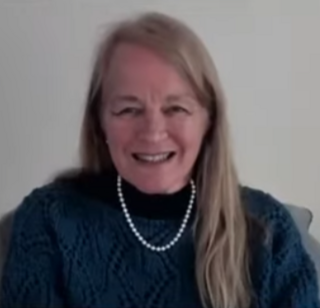
Alice Petry Gast is an American researcher, was the 16th president of Imperial College London, and sits on the board of directors of Chevron. Gast was named one of the top 100 "Modern Era" engineers in the US under the category of "Leadership" by the American Institute of Chemical Engineers.
The Image Permanence Institute (IPI) is a university-based, non-profit research laboratory devoted to scientific research in the preservation of visual and other forms of recorded information. It is the world's largest independent laboratory with this specific scope. IPI was founded in 1985 through the combined efforts and sponsorship of the Rochester Institute of Technology and the Society for Imaging Science and Technology. Funding for IPI's preservation research and outreach efforts has come mainly from the National Endowment for the Humanities, the Institute of Museum and Library Services, and the Andrew W. Mellon Foundation. Additional funding comes from generous donations made by corporate supporters. IPI provides information, consulting services, practical tools and preservation technology to libraries, archives, and museums worldwide. The imaging and consumer preservation industries also use IPI’s consulting, testing and educational services.
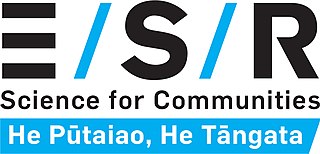
The Institute of Environmental Science and Research (ESR) is a New Zealand Crown Research Institute (CRI). Its purpose is to deliver scientific and research services to the public health, food safety, security and justice systems, and the environmental sector to improve the safety of, and contribute to the economic, environmental and social well-being of people and communities in New Zealand.
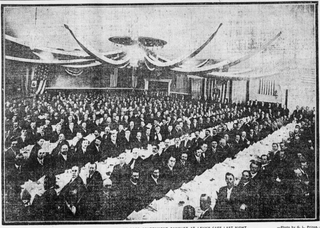
The United States has a history of citizen, nonprofit, and other non-partisan groups advocating good government that reaches back to the late-19th-century municipal-level Progressive Movement and the development of governmental professional associations in the early part of the 20th century, such as the American Public Human Services Association and the International City/County Management Association. Many of these groups had their genesis at the Public Administration Center at 1313 East 60th Street, at the University of Chicago.
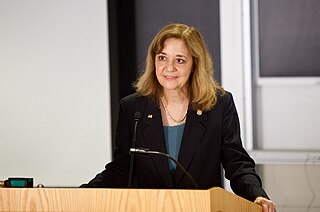
Rosina M. Bierbaum is currently the Roy F. Westin Chair in Natural Economics and Research Professor at the University of Maryland's School of Public Policy. She is also a professor and former dean at the University of Michigan School of Natural Resources and Environment (SNRE). She was hired in October 2001, by then-University of Michigan President, Lee Bollinger. She is also the current Chair of The Scientific and Technical Advisory Panel (STAP) that provides independent scientific and technical advice to the GEF on its policies, strategies, programs, and projects.
The Leibniz-Zentrum für Marine Tropenforschung (ZMT) in Bremen is a German institute for research and developments for tropical and subtropical coastal areas and ecosystems.
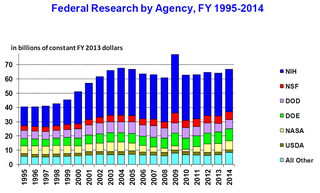
The science policy of the United States is the responsibility of many organizations throughout the federal government. Much of the large-scale policy is made through the legislative budget process of enacting the yearly federal budget, although there are other legislative issues that directly involve science, such as energy policy, climate change, and stem cell research. Further decisions are made by the various federal agencies which spend the funds allocated by Congress, either on in-house research or by granting funds to outside organizations and researchers.

Tan Sri Zakri bin Abdul Hamid has had a distinguished career in science as a researcher, educator, administrator and diplomat.

Katherine "Kathy" Anne Yelick, an American computer scientist, is the vice chancellor for research and the Robert S. Pepper Professor of Electrical Engineering and Computer Sciences at the University of California, Berkeley. She is also a faculty scientist at Lawrence Berkeley National Laboratory, where she was Associate Laboratory Director for Computing Sciences from 2010–2019.

The contributions of women in climate change have received increasing attention in the early 21st century. Feedback from women and the issues faced by women have been described as "imperative" by the United Nations and "critical" by the Population Reference Bureau. A report by the World Health Organization concluded that incorporating gender-based analysis would "provide more effective climate change mitigation and adaptation."
Miriam E. John is an American engineer who is a policy advisor and former vice president of Sandia National Laboratories. She is an expert in nuclear weapons and chemical defence. In 2022, she was awarded the Lawrence Livermore National Laboratory John S. Foster, Jr. Medal and was elected Fellow of the National Academy of Engineering.












